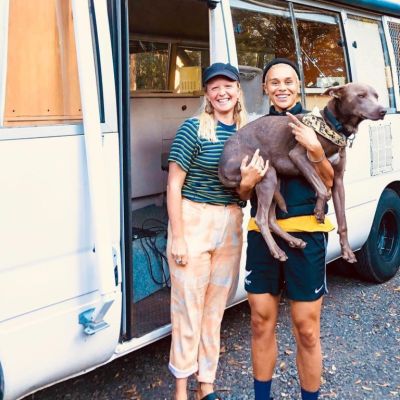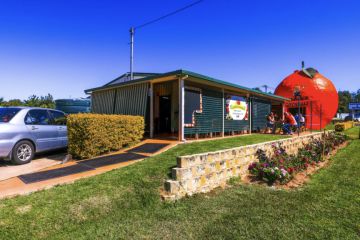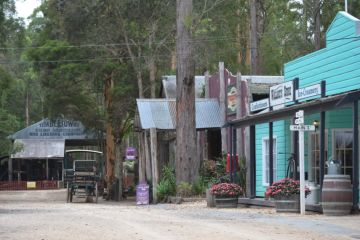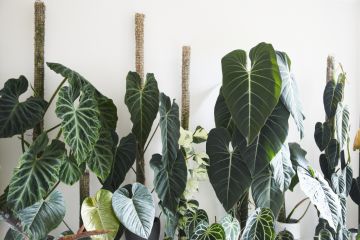'I love it here': Author Eliza Henry-Jones' idyllic Yarra Valley retreat
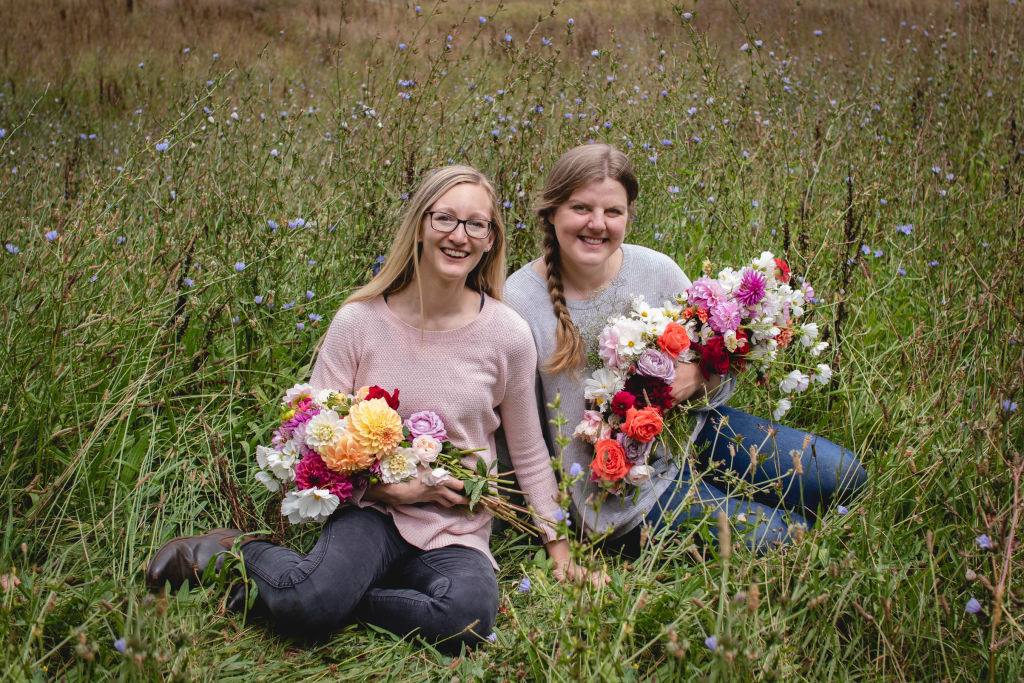
The Yarra Valley is just an hour from Melbourne, but its fertile hills, sweeping vistas and slower pace of life can make it feel a world away from the city.
Novelist Eliza Henry-Jones lives here, on a 3.2-hectare farm with her husband Ben and their young son Henry.
Home is where Henry-Jones thrives, and the house and paddocks are filled with things she loves.
There are fruit orchards and veggie gardens where she and Ben grow food. Depending on the season, you’ll find everything from blueberries and hazelnuts to asparagus and goji berries.
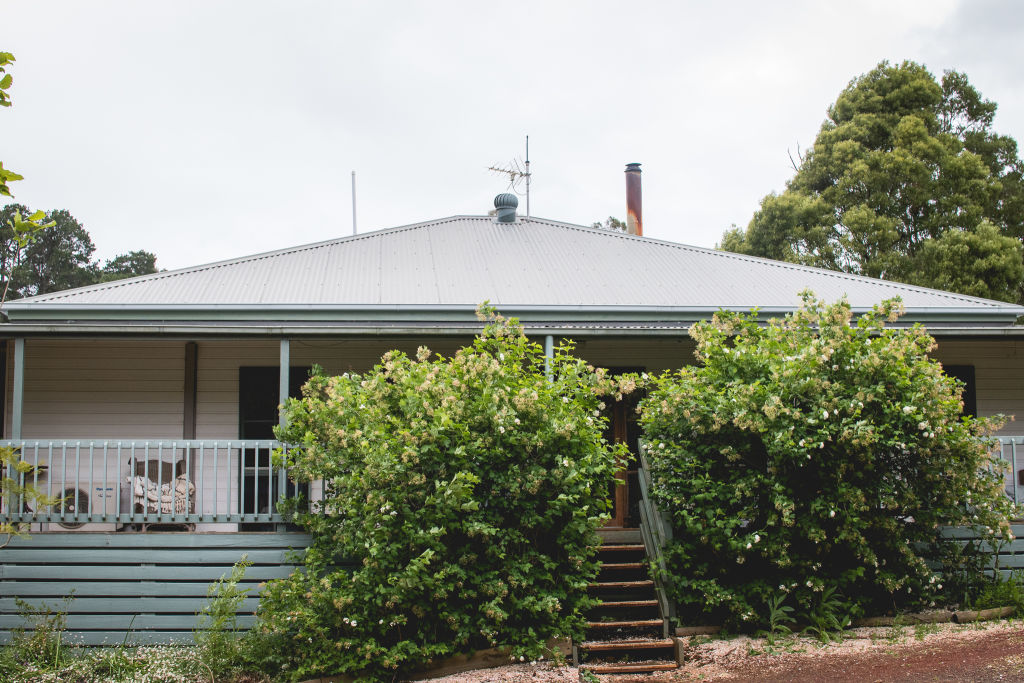
Their farmhouse, “a white, wooden thing perched on the hillside”, has a wraparound verandah where Henry-Jones spends her time writing when the weather is fine.
The author of four novels, including In the Quiet and last year’s How to Grow a Family Tree, she also completes freelance writing gigs and studies towards her PhD.
That’s a lot of solitary work and a reason Henry-Jones says her newest home-based venture – a flower farm that she runs with her cousin, Melanie Kercheval – is “an unbelievable joy”.
The two women launched the project, Gather Flower Farm, last September. They grow and sell wholesale cut flowers to local florists and create seasonal buckets for events.
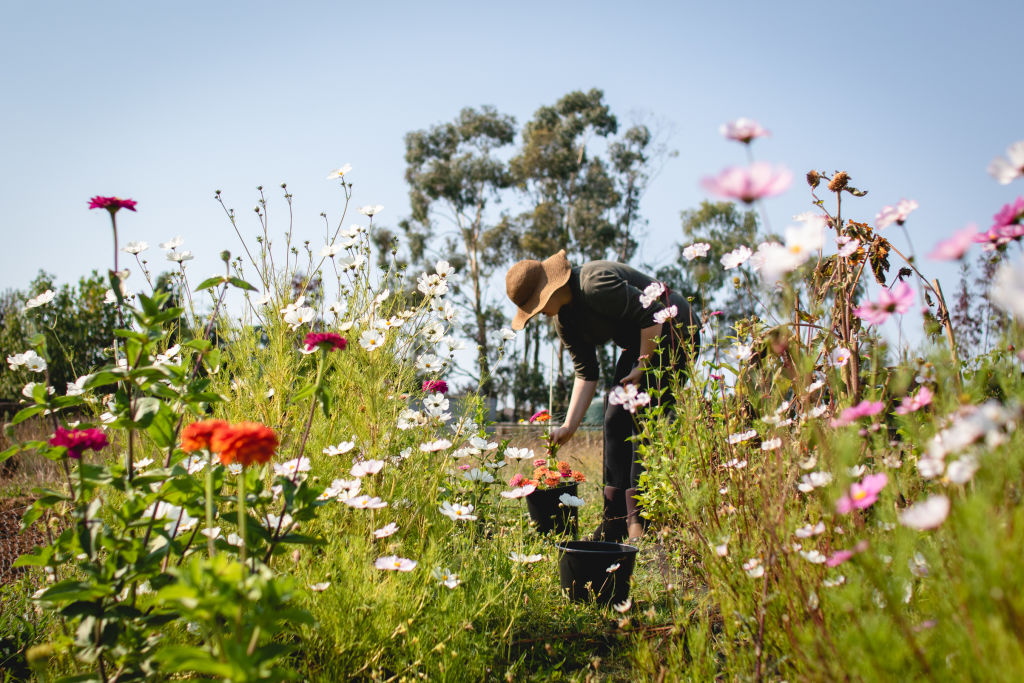
On Henry-Jones’ land, they’ve planted dahlias, a hundred types of roses, and 300 herbaceous peonies that “we’re probably most excited about”.
The farm’s older plants, which Henry-Jones admits she once “barely noticed”, have made their way into the spotlight too.
“We’ve actually found that so much of what was already established [on the farm] is perfectly suited for cut flowers,” she says. “Things like banksia, wattle, eucalyptus, protea, roses and leucadendron.”
As growers, Henry-Jones and Kercheval follow environmentally-friendly principles, using no herbicides or pesticides.
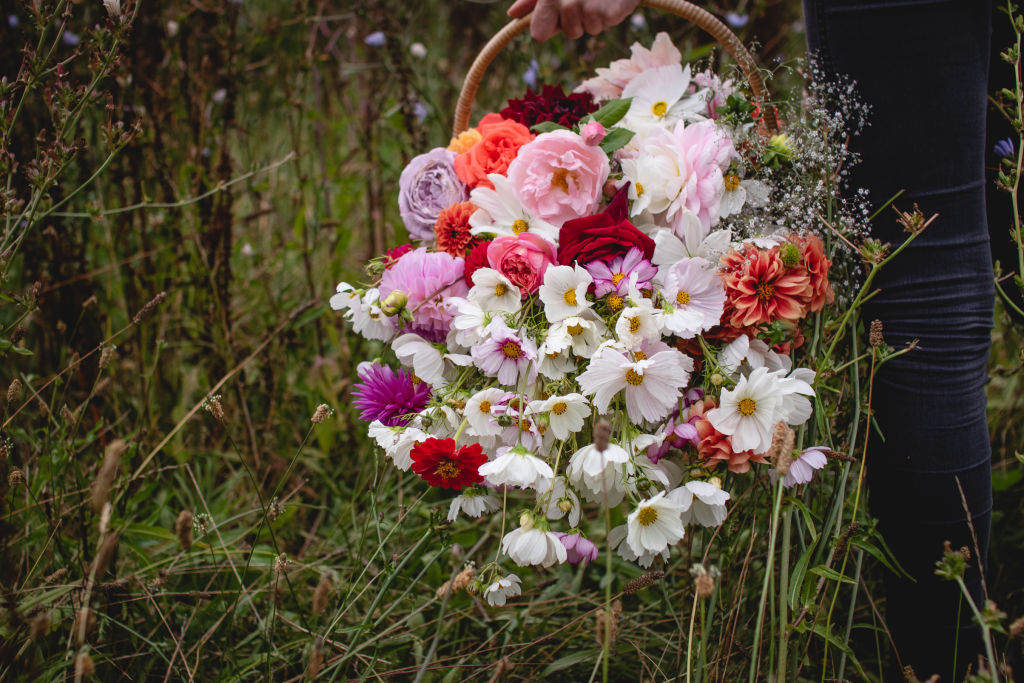
“Sometimes it seems overwhelming,” Henry-Jones admits of that approach, “but then we’ll find a blue-tongue lizard or frogs in the flower patches or ladybirds eating aphids, and we’re reminded of how worthwhile it is – and why we’re doing it this way.”
Encouraging mini-beasts to thrive is in line with how Henry-Jones and her family run the whole property, which they share with an impressive menagerie of animals, many of them rescued.
Dogs, cats, mini-goats, horses, and 20 former battery hens are just some of the fortunate beings that have found their way to this gentle haven.
Ferdy the duck follows Henry-Jones while she’s gardening, eating the pests, while Harmony the Shetland pony has been known to pop into the barn while Henry-Jones is running a workshop.
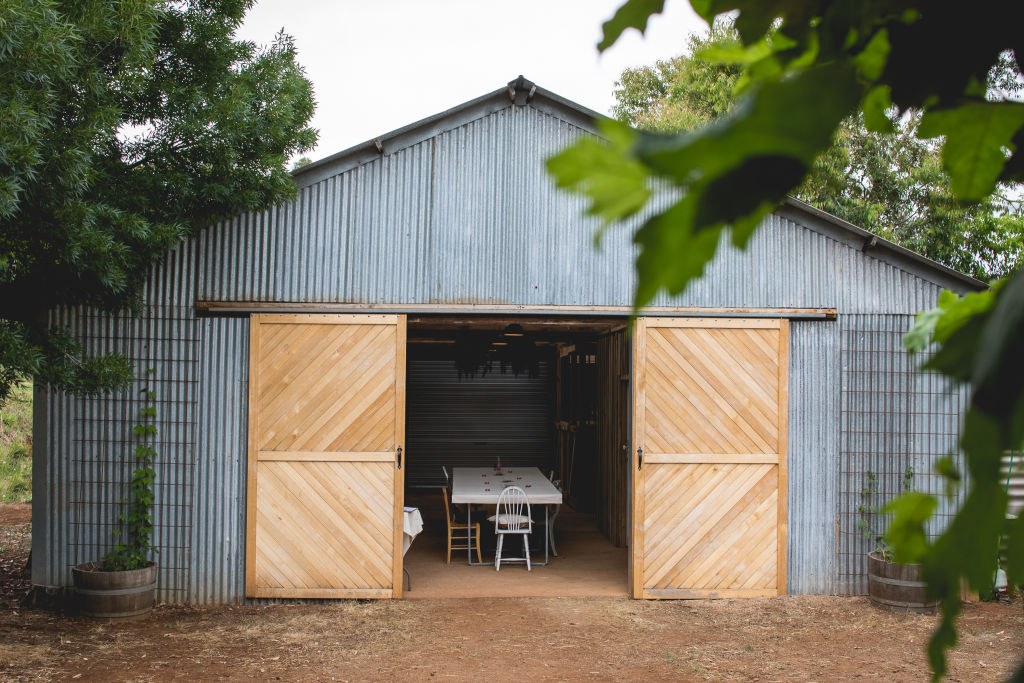
That barn, a newly-renovated space just steps from the farmhouse door, has recently become a hub for swapping information and skills since Henry-Jones started inviting local artisans and florists to come in and teach their skills to small groups.
Flowers are often the subject of the workshops, too.
“Over the past seven months, we’ve run floral watercolour, wreath making, bouquet making, arrangement making, macrame, and writing [workshops],” she says.
The barn was a “quite unattractive” old shed before Henry-Jones and Ben got rid of the gravel floor, swapped old florescent lighting for pendants, and installed internal panelling salvaged from a local winery.
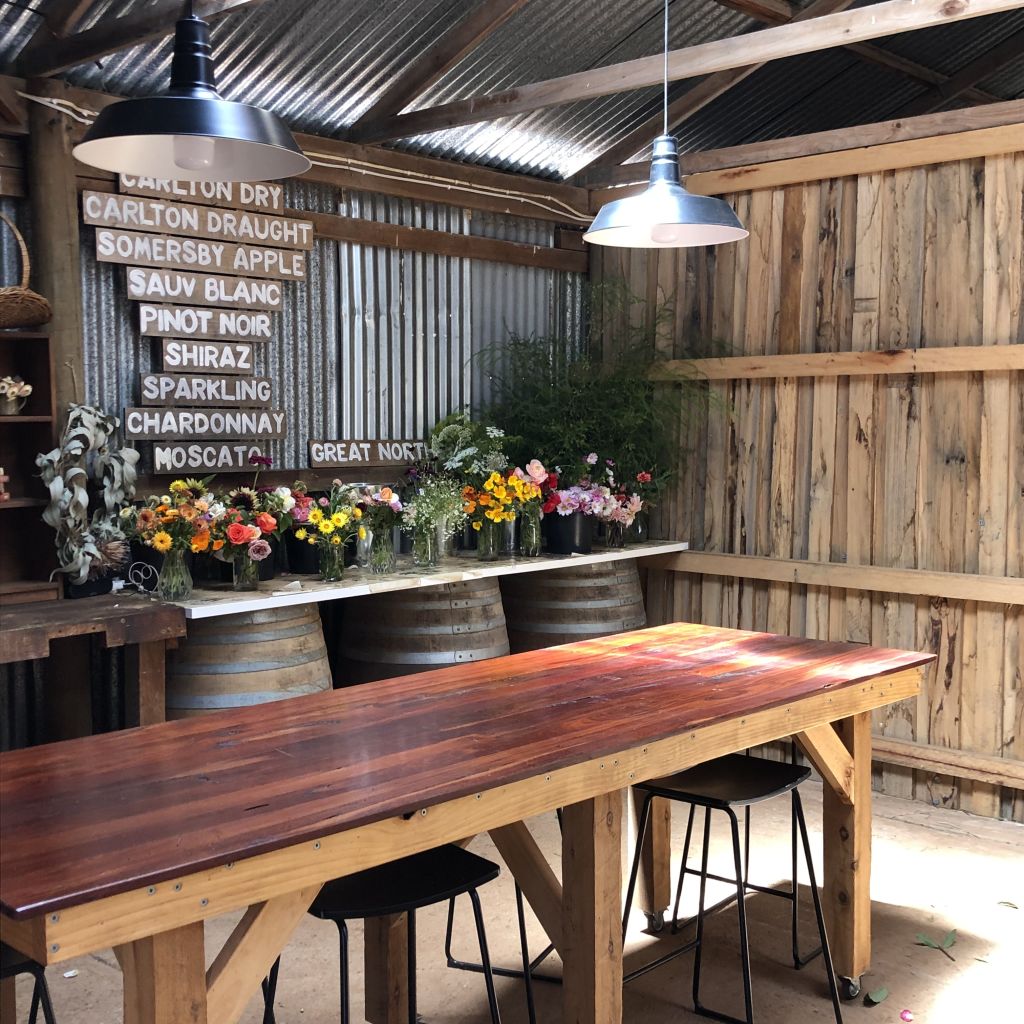
Ben built the barn’s striking doors out of Tasmanian oak.
“Initially, we were thinking of building another shed entirely,” Henry-Jones says, “but the existing one had so much character, with its wooden beams and old corrugated iron cladding, that we ended up adapting it. I’m so glad we did!”
It’s a very full life, so it’s perhaps surprising to hear that Henry-Jones has managed all this while struggling with ME/CFS (myalgic encephalomyelitis/chronic fatigue syndrome) for the past 10 years.
“I have periods when I’m going pretty well and other periods where I’m in bed and completely non-functional,” she says.
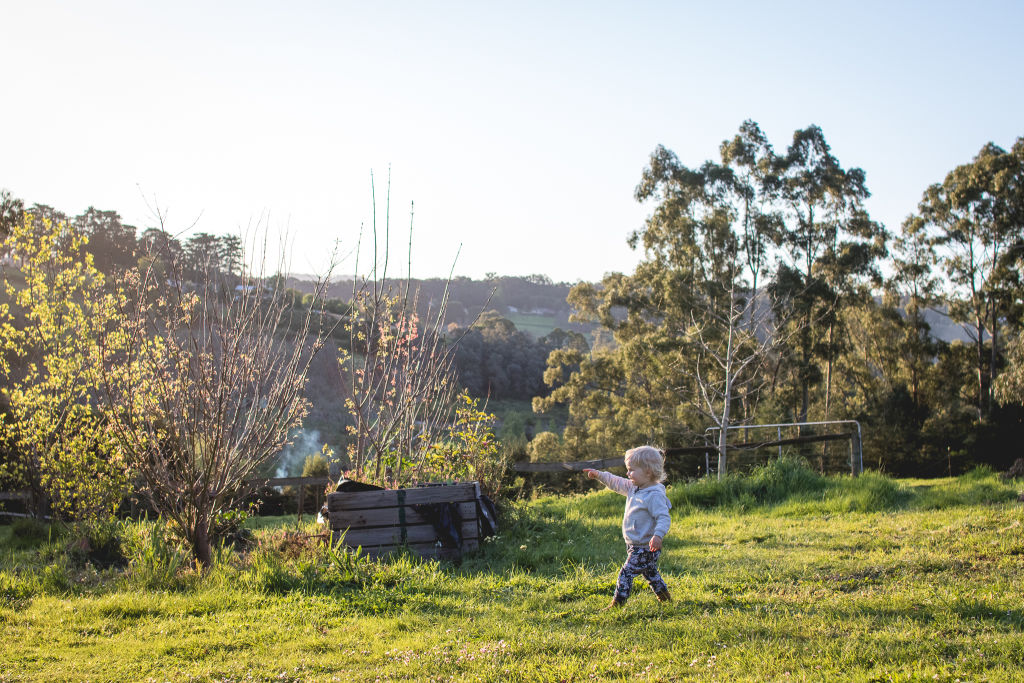
The flexibility afforded by working for herself helps.
“Being able to manage my own time – to rest when I need to and choose how much work I take on – is what makes everything possible.”
She also notes that she’s “extremely well-supported, which is a huge privilege”. As well as spending days with her husband, son, and cousin, her mother Jan also lives in her own little home on the farm.
“I think in different circumstances, I might have felt isolated up here or overwhelmed, but our farm is always bustling with friends and family, and so it always feels like the sort of place that nurtures and holds you,” Henry-Jones says. “I love it here.”
We recommend
We thought you might like
States
Capital Cities
Capital Cities - Rentals
Popular Areas
Allhomes
More
- © 2025, CoStar Group Inc.


